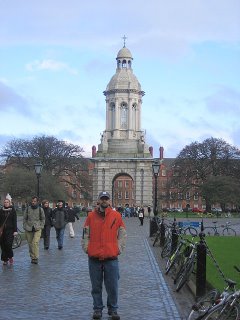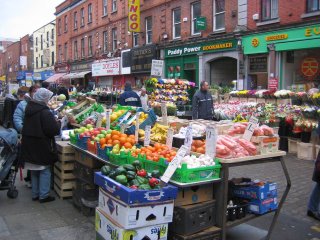Ok, so I’ve been thinking about issues of poverty a lot lately. This came about firstly because I listened to a panel discussion at the Harvard Veritas Forum discuss the Christian response to poverty. Then, I read
R’s post on a related topic—African turmoil—inspired by the movie
The Constant Gardener. And Tim, who’s back blogging, related to me, and blogged about
here, a great story about his experience with a homeless man on the T and his subsequent conversation with his kids. And to top it all off, this morning I was forced to come face to face with my hardened heart as I was less than helpful to a homeless man asking for directions.
Since moving to the city of Boston, I find myself forced to confront the issue of poverty—and the Christian’s response—in a way that I wasn’t in the Midwest. Perhaps it’s the deeply ingrained value of “personal responsibility” that makes me resistant, at least cognitively, to the pleas of the homeless on the street. Whatever it is, I certainly haven’t worked out in any meaningful way what it looks like to be a radical giver.
Really, it’s not a “city” issue, though the city makes me more aware of it. It’s a kingdom issue. It’s about sacrificial giving. A few weeks ago I gave the offertory prayer in Church. In it, I asked that God would enable us to give radically because we know that in Christ we have abundant riches. This, I believe, is part of the motivation for giving. We know that we are amply provided for, and we can give, therefore, as Christ himself gave. But this is only part of the motivation—and a somewhat passive one, at that.
There’s also an active aspect to the giving motivation. Our pastor has been preaching lately on the Church’s vision. I would say most of the people in our congregation are transitory; they have no real intention of settling down in Boston but are here for school, training, jobs, etc. Last sermon the pastor gave on church vision touched on this dynamic. He pointed out that most of us are here to take from the city. He encouraged us to think about what it would look like for us to develop a heart for the city, such that we want to give to the city—to live here and commit to its transformation. Before one can give in the way that Christ gives, there must be a total commitment to those who are in need, inspired, perhaps, by an identification with those people.
I’m certainly not there in terms of either a passive or active desire to give. It’s my hope, though, that as believers in the city of Boston, we can encourage each other to think about how to live
for the city--how to embrace a kingdom ethic in a secular and downtrodden urban area.






















